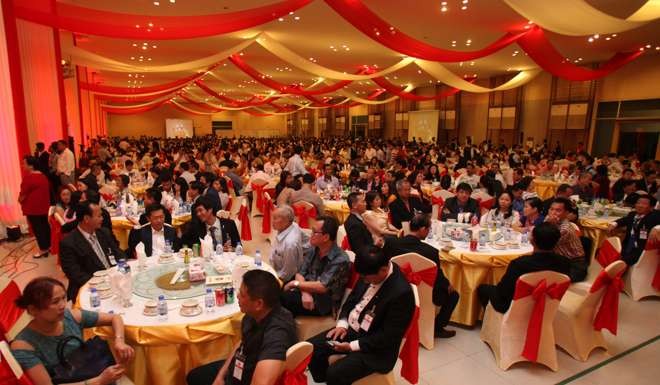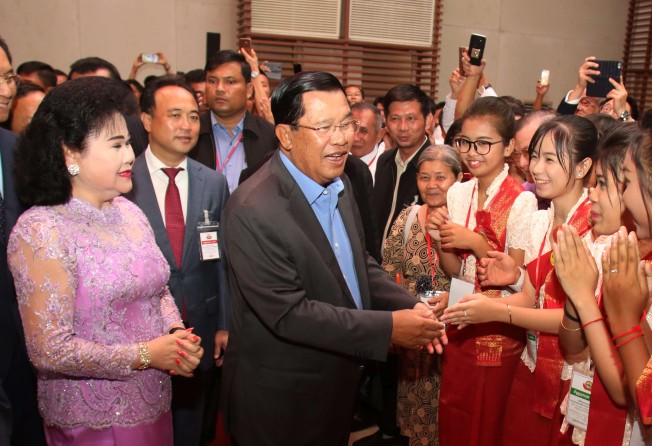
By banning Taiwan’s flag, Cambodia adds to Taipei’s woes with Beijing

Cross-strait ties are expected to take another hit after Cambodia banned the raising of the Taiwanese national flag in the Southeast Asian nation.
The move, announced by Cambodia Prime Minister Hun Sen over the weekend, is seen by some in Taiwan as the latest attempt by Beijing to pressure the island’s President Tsai Ing-wen into bowing to Beijing.
In a dinner at the Cambodian-Chinese Association on Saturday, Hun Sen said the Taiwanese flag could not be flown due to the country’s long-standing support for Beijing’s one-China principle.
“We should not do anything that affects the respect for China’s sovereignty,” he said in a Facebook posting. Given that Taiwan was “another province of China” he had asked the public not to “raise the Taiwanese flag whenever you are gathering, even at hotels during Taiwanese national holidays”.
When asked about the move, Taiwanese foreign ministry spokeswoman Eleanor Wang said: “As a sovereign, independent country, Taiwan is devoted to safeguarding peace and stability in the Asia-Pacific region.”

Lai Chung-yi, executive director of Taiwan Thinktank, said Beijing should take into account the feelings of the Taiwanese public, and realise such isolationist tactics would only increase public resentment towards the mainland.
The flag issue comes a month after Nigeria said Taiwan’s unofficial representative office had to move out of its capital, Abuja, a demand also seen in Taiwan as reflecting the mainland’s influence.
Gao Jyh-peng, a legislator with the independence-leaning Democratic Progressive Party, said the island was facing tremendous pressure on the diplomatic front.
“Such actions to squeeze our international space will continue given Beijing’s ‘one-China’ policy,” he said, adding the Tsai government must also prepare for Cambodia changing its investment regulations in a way that would hurt the interests of Taiwanese businesses.
Wu Yongping, deputy director of the Taiwan Research Institute at Tsinghua University in Beijing, said that as long as Tsai refused to accept the 1992 consensus, there was a possibility that Taiwan would lose its remaining 21 diplomatic allies.
Tsai, who took office in May last year, has refused to accept the consensus – which Beijing insists she must if relations are to continue. The consensus is an understanding reached in Hong Kong in 1992, to the effect that both sides agree there is only one China but that each has its own interpretation of what one China is.